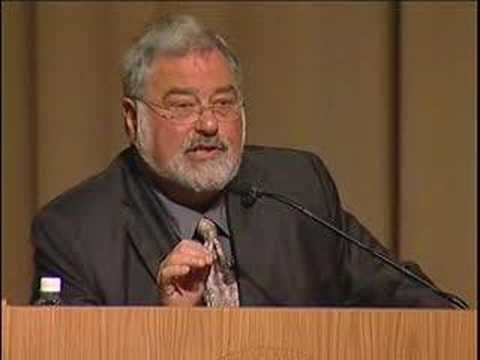Run on Vision, Not Just Resistance: Mamdani's NYC strategy
Free childcare and buses. Cheaper groceries. Lower rents. Whether or not you support Zohran Mamdani, who won the Democratic primary
How metaphors shape our understanding of complex ideas like the soul

Billionaires are pouring money into anti-democratic propaganda outlets. Help us fight back! Join hundreds of fellow FrameLab readers in becoming a paid subscriber today! Click here to make a contribution.
From the archives:
Around 15 years ago, Dr. George Lakoff appeared on a TV show called Closer to the Truth, which explores human consciousness and the meaning of life. The host, Dr. Robert Lawrence Kuhn, asked him a serious question: Do immortal souls exist?
The answer, according to cognitive science: It's complicated.
"From the point of view of the brain, which is all you have for understanding the world, you're always using metaphors for understanding God," said Dr. Lakoff. "You have no choice."
Watch the fascinating six-minute interview below:
Click to watch a 6-minute Dr. Lakoff's 6-minute interview on the soul.
Key Takeaways:
Transcript:
Robert Lawrence Kuhn: George, one of the great debates in religion is the question: Is there an immortal soul? Is the person a soul? And there are different philosophical positions and of course, neuroscience is weighing very heavily into this question nowadays. How do you view the question?
George Lakoff: Well, first of all, the question arises because of the structure of the brain. Our brains are structured so that parts of the prefrontal cortex monitor what the perceptual and physical parts of the body are doing. And that gives rise to the metaphor that we have both the subject and ourselves. We're looking at ourselves. You can say, “step outside yourself, take a good look at yourself.” “That's not the real me.” “The real me is inside, et cetera.”
We have a whole set of metaphors that separate out the experiencing subject from the self, which is a result of a real thing, which is the way our brain is structured to monitor the rest of what our brain is doing with respect to our body and what we're perceiving.
Robert Lawrence Kuhn: Is there any possibility, if that is true, of going beyond that to see is there some real antecedent to which that refers? Is that just impossible to do?
George Lakoff: It's a strange thing. You ask: Is the metaphor real? It's a strange question to even ask. Which metaphor do you choose and which metaphor ... and how would you tell whether it was real? It's an odd question from the point of view of the brain. From the point of view of the brain, which is all you have for understanding the world, you're always using metaphors for understanding God. You have no choice.
Now the soul is an interesting case like that. And a way to ask this question that usually isn't asked from the point of view of cognitive science and neuroscience is this: Presumably the soul would exist without the body. After the body dies, can have the soul go on, the body can be destroyed, there's a soul. So the question is, what do need a body for?
If you want to know the properties of the soul, there's things you don't need a body for. Could the soul see? Not a chance. Vision, half of our brain is devoted to vision. If you know anything about color, it's created partly by neural circuitry and things here. If you look at shading, if you look at texture, you need lots and lots of neural structure in the brain and structure in the eyes and so on to create vision. And usually to create vision you also have to be able to move and function in the world. So the soul can't see. Can the soul move? Well, it doesn't have a body … well could it just transfer itself, well, how?
There's a question of could the soul hear without an auditory cortex. What is hearing? Hearing has to do with the way the auditory cortex works and on sound waves. No auditory cortex, no sound, no interpretation of the sound waves, no hearing.
Could the soul think? Well, it turns out that thought depends upon other facts about the body. You have to be able to use certain forms of reason in your brain, parts of the brain that think.
Does the soul have emotions? Well, emotions have to do with certain emotional pathways. There are negative and positive emotional pathways. The amygdala has certain structures, the insula has other structures.
Could the soul feel disgust without a body? Could the soul feel anger? Could the soul feel, you know, enraged? Well, it turns out that there are certain structures having to do with neurotransmitters, and so on, required for those emotions. So the soul has not got emotions.
Does the soul have a personality? Well, it turns out that if you have certain strokes in certain parts of the brain up here, your personality changes. You get a different personality. Well, without that part of the brain, whose personality is the soul? So the soul doesn't see, doesn't hear, doesn't think, doesn't have emotions, doesn't have a personality.
Okay, whose soul is it? And what good is it?
It doesn't fit the usual notion of a soul of you as you are. Couldn't the soul have a memory? To have a memory, you have to have certain neural structures and memories are constructed. They're not just stored as they occur. They are, they are constructed anew each time. So to have a memory, you have to have a brain that reconstructs it. Without a brain, you don't have memory. Souls don't have memory.
Robert Lawrence Kuhn: So you're using these arguments, in essence, to show the non-existence of the soul, the soul is a meaningless concept…
George Lakoff: I’m not saying it doesn't exist. I'm just saying it can't have any of the usual properties. It's not much related to you. If it's your soul, what could it mean? If it has none of your memories, none of your personality – it can't see, can't hear, can't think, and can't feel. Sorry, it doesn't look a whole lot like you. Now, does it exist? I'm not saying anything.
Robert Lawrence Kuhn: And your argument then would be that this brain structure, which creates this, engenders the assumption or the belief that there is something independent of my body.
George Lakoff: Exactly. Now, given that, you then ask a question: If there's something independent of your body that exists after you die, what are its properties? What do you need a body for? And that's the place we ask the question. If you turn the question around and you say, okay, suppose there's a soul, what are its properties? What do we know about the body that would either show that there is or isn't a soul or what could the soul not be? And then we can now study it and here's how it goes.
Further Reading

FrameLab on the power of unconscious thought.

Dr. Lakoff goes deep on the politics of the brain.
Subscribe